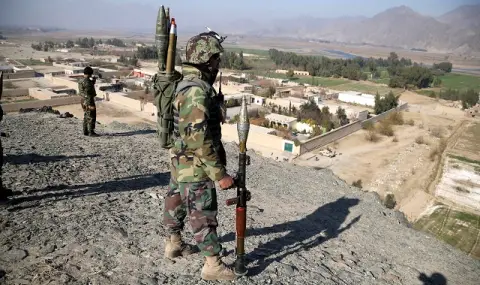The deputy prime minister of Yemen's UN-recognized government welcomed Donald Trump's return as US president, reports "Reuters".
He said it was a crucial turning point in containing the Iran-backed Houthis, who threaten regional stability and maritime security.
Aidarus al-Zubaidi said Trump's strong leadership and willingness to use military force stood in stark contrast to the Joe Biden administration, which he said had allowed the Houthis to consolidate power, strengthen their military capabilities and expand their reach beyond Yemen.
"Trump knows what He wants. He is a strong decision-maker," Zubaidi said on the sidelines of the World Economic Forum's annual meeting in Davos.
"We are fans, admirers and supporters of Trump's policies because he is a person who has enough decision-making power to govern America and the world," he said, adding that he expected talks with the incoming administration to begin soon.
The Houthis control the northwest of Yemen, where most of the 23 million people live, while the rest of the country is held by the Southern Transitional Council, which wants an independent South Yemen and is backed by the United Arab Emirates.
Zubaidi leads the armed group that holds three seats on the eight-member Presidential Leadership Council, the Aden-based coalition government that opposes the Houthis.
He said Yemen's unification was still slips and calls for two states, as was the case before 1990, when South Yemen was separated from North Yemen.
"When we become two states, the conflict will be resolved," he stressed, adding that a coordinated international, regional and local strategy led by the United States is needed to hit and weaken the Houthis and stop their attacks on Western merchant ships sailing through the Red Sea.
Last year, the Houthis attacked more than 100 ships with drones and missiles in solidarity with the Palestinians in the war between Israel and "Hamas" in Gaza.
Before Trump took office yesterday, Yemeni Houthi leader Abdul Malik al-Houthi announced that the rebels would limit attacks in the Red Sea to Israeli-linked ships after the Gaza truce began, but that strikes could be renewed if the situation changed.
"We hope that America will be motivated to deter the Houthis because they will continue to threaten maritime shipping. They are the biggest threat. The Houthis are part of an international consortium led by Iran, Russia and China," Zubaidi pointed out.
The war in Yemen - one of the poorest countries in the Middle East - began in 2014, when the Houthis invaded the capital Sanaa and took over state institutions.
The UN peace process to end the war, which caused a severe humanitarian crisis, stalled after the start of the war between Israel and "Hamas" in Gaza.
The conflict in Yemen has led the Houthis to consolidate their positions in the north of the country, where they have created a mini-state that they rule with the support of Tehran.
"This war has cost us a lot. It has led to the collapse of the entire economy and a sharp devaluation of the currency, now an employee earns 50-60 dollars a month. "Hundreds of billions of dollars will be needed to rebuild Yemen," Zubaydi said.
